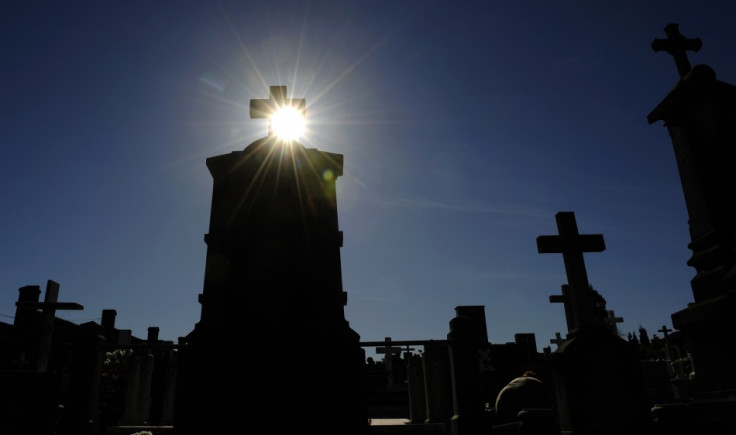South African Firm Launches GPS Tracker for Stolen Gravestones

A company in South Africa is offering to implant microchips into gravestones to deter thieves who steal them from cemeteries.
Memorial Alert said the device will send a text message or email to relatives of the deceased, warning them if a grave is being moved or tampered with.
Alan Buff, who oversees Johannesburg's cemeteries, told the Times of South Africa: "Two weeks ago we met a company which installs a device to keep tabs on tombstones. While the city will not be directly involved... it is a step towards curbing the rampant theft of tombstones."
He said that despite most cemeteries now having security patrols and perimeter fences, about 20 gravestones were stolen each month from his graveyard alone, which were then sold on to unscrupulous stone masons and merchants.
Two weeks ago, several stone masons were charged and two service providers blacklisted for allegedly trading in stolen gravestones.
Mark Pringle, the director of Chaldean Trading 9 Ltd, the company developing the technology, said anyone tampering with the gravestones would also set off an alarm in the cemetery.
"This in itself should be a fair warning to the perpetrators. Then text messages are sent to the mobile phones of delegated family members and any integrated security companies," he said.
The microchip will contain a transmitter, similar to those used to track stolen cars.
A microchip device is already available to help people navigate their way to relatives' graves in packed cemeteries.
"This is peace of mind for the family," said Bluff.
"Tombstones are the property of the owner, which is the family member, and you'll find you cannot insure a tombstone or it's too expensive for many. By doing this, it is insured."
Memorial Alert said that the device will be available in South Africa, and may then be rolled out in the UK, the US and the EU.
It says that apart from replacing batteries, the technology will require little maintenance: "The cost of battery replacement is minimal and is ultimately the responsibility of the client, not the cemetery authority," claims the company's website.
© Copyright IBTimes 2024. All rights reserved.























